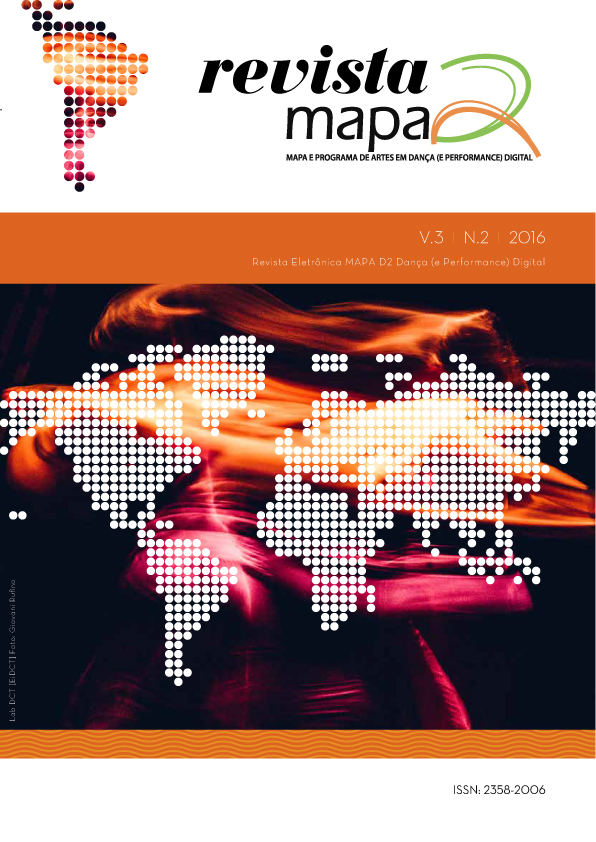Lab DCT: experiências e reflexões sobre presença e memória na dança com mediação tecnológica pela perspectiva da cognição situada / experiences and reflections about presence and memory in dance with technological mediation through the situated cognition
Resumo
Resumo
Este artigo apresentará a concepção e as configurações criadas para os módulos de experimentos cênicos aplicados no Laboratório Dança-Cognição-Tecnologia [Lab DCT], bem como os fatores que motivaram a elaboração desse evento. O Lab DCT foi realizado durante os três primeiros dias da programação do I Encontro interdisciplinar em Dança-Cognição-Tecnologia [EiDCT], e foi apresentado ao público no quarto dia do evento. Presença e memória foram os temas centrais dos módulos de experimentos cênicos, ou seja, nichos elaborados para articular sistemas biológicos e não-biológicos através de mediação tecnológica. A concepção do Lab DCT e, consequentemente, das configurações propostas para as experiências, foram fundamentadas nos estudos da cognição situada, tendo como referência bibliográfica os filósofos Alva Noë (2004, 2010, 2012) e Andy Clark (1999, 2003, 2007). Por essa perspectiva teórica, compreendemos que a percepção ocorre nessa relação do sujeito com seu ambiente, mas, para isso, é necessário ter conhecimento sensório-motor que possibilite acesso aquele contexto.
Palavras-chave: Percepção; corpo; presença; memória; conhecimento sensório-motor.
Abstract
This article presents the conception and the configurations created for the modules of scenic experiments that happened at the Dance-Cognition-Technology Laboratory [Lab DCT], as well as the factors that motivated the event’s elaboration. Lab DCT happened on the three first days of activities of the 1st Interdisciplinary Meeting on Dance-Cognition-Technology [EiDCT], and it was presented to the public on the fourth day of the event. Presence and memory were the central themes of the modules of scenic experiments, i.e. niches elaborated to articulate biological and non-biological systems through technological mediation. The conception of Lab DCT and thus of the configurations proposed for the experiments were based on situated cognition studies, whose bibliographic reference were the philosophers Alva Noë (2004, 2010, 2012) and Andy Clark (1999, 2003, 2007). Through that theoretical perspective, we understand that perception happens in the relationship between the subject and his/her environment however, for that to happen sensorimotor knowledge that enables access to the context is required.
Keywords: Perception; body; presence; memory; sensorimotor knowledge.

